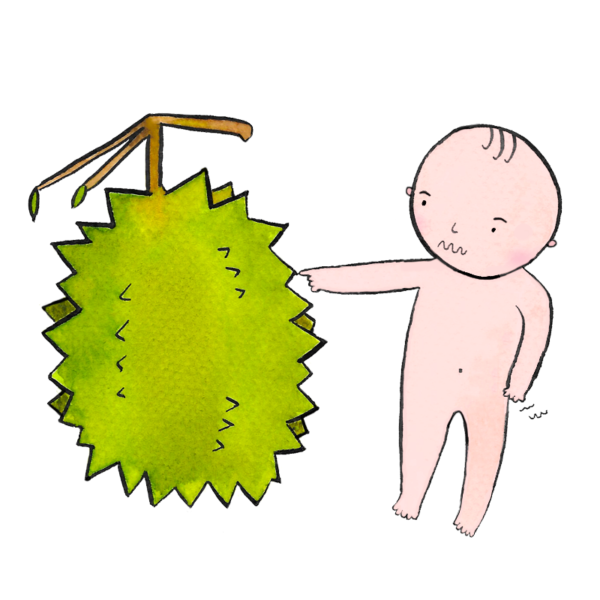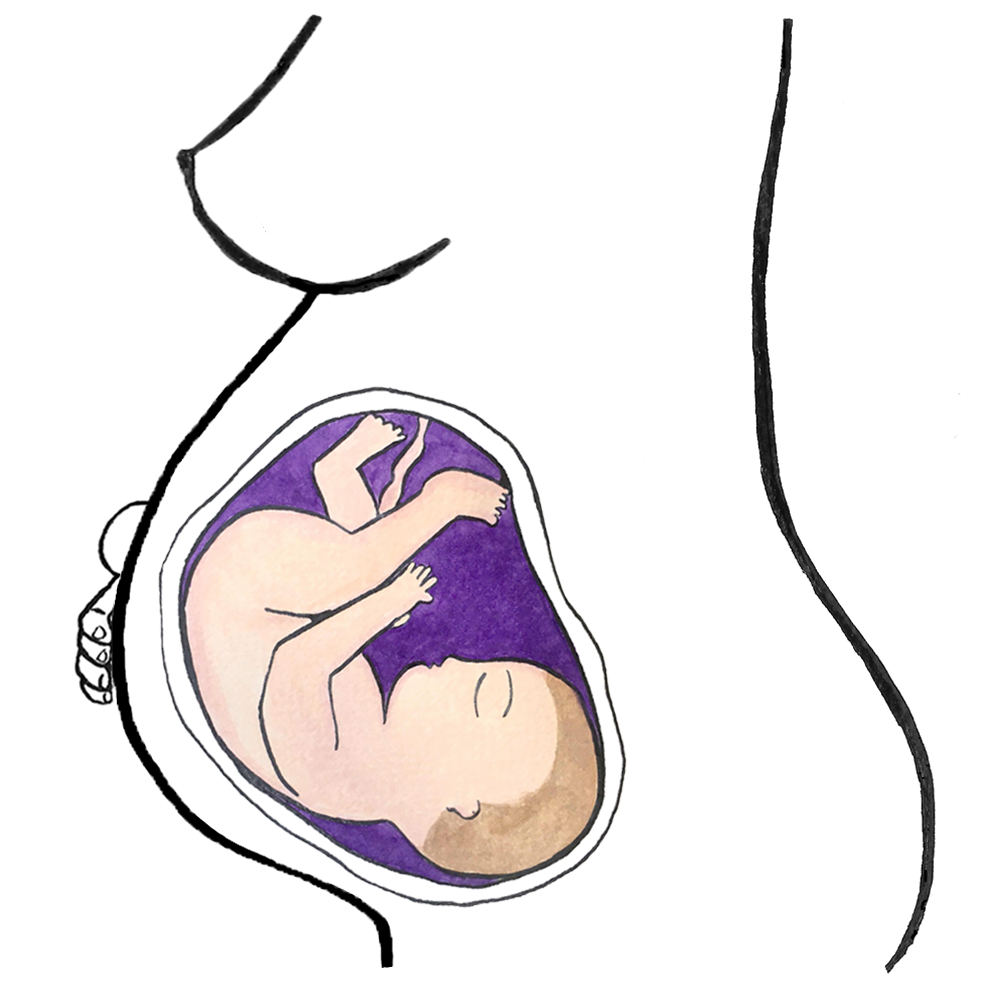37 weeks pregnant
Weekly update

Your Child’s systems have matured enough to sustain life outside your body. Meanwhile, you may start seeing thick mucus discharge with stains of blood.
Your Child’s development
At this stage, Your Child weighs 2.6 kg and measures 48cm — the size of a durian. The little one is now considered to be near-term since the baby is mature enough to maintain life after birth. Now, it’s basically a matter of when your baby wants to come out.
Ready to breathe: The lungs are getting ready to breathe air as Your Child continues practicing with amniotic fluid.
Position: Already in the head-down position, Your Child might start descending further down into your pelvis.
The grasp reflex: Your Child has already developed strong reflexes, including the grasp reflex. So, your little one would easily grasp any object placed on the palm.
The thyroid hormone: Thyroxine, a hormone that helps regulate Your Child’s metabolism and brain development, has now reached the adult level.
The first poo: Your Child’s gut now contains meconium, the first dark-greenish poo which will pass within 24 hours of birth.

Your development
With labor approaching very fast, your cervix may have started getting thinner and dilating, but you can’t feel it anyway. During your next appointment, your doctor will examine your cervix to know the extent of thinning so as to estimate the onset of labor.
Mucus discharge: As your cervix gets thinned out, you may start seeing mucus discharge, which may be blood-stained, indicating the rupture of blood vessels in your cervix as your body gets ready for childbirth.
What you can do
You can start making plans about breastfeeding and bottle feeding and get the equipment and tools to help you.
Breast milk in bottles: Your breast milk costs nothing and comes with the optimal balance of nutrients Your Child needs. It also contains antibodies to help protect your child from allergies and illness, which formulas don’t have. If you can’t breastfeed your child all the time, you may consider bumping your breast milk and store it in a freezer, from where you gradually feed Your Child with a bottle.
Problems with breastfeeding: If you experience any problems with breastfeeding, it’s important to ask for help from your midwife, doctor or a breastfeeding specialist as soon as possible.
Verified:
Dr. Wanwadee Sapmee Panyakat (OB-GYN), license no. 41208 (20 October 2021)
Sources:
- 37 Weeks Pregnant - The Endowment of Human Development
- Pregnancy Week 37 - American Pregnancy Association
- Breast-Feeding vs. Formula-Feeding: What's Best?, Mayo Clinic
- Benefits of Breastfeeding, NHS
- 37 Weeks Pregnant - Breastfeeding Problems, National Health Service
- 37 Weeks Pregnant - Failure to pass meconium: Diagnosis neonatal intestinal obstruction
- Pregnancy 37 to 40 weeks
- 37 Weeks Pregnant - Fetal development: The 3rd trimester - Mayo Clinic
- Fetal development: The 3rd trimester, Mayo Clinic



